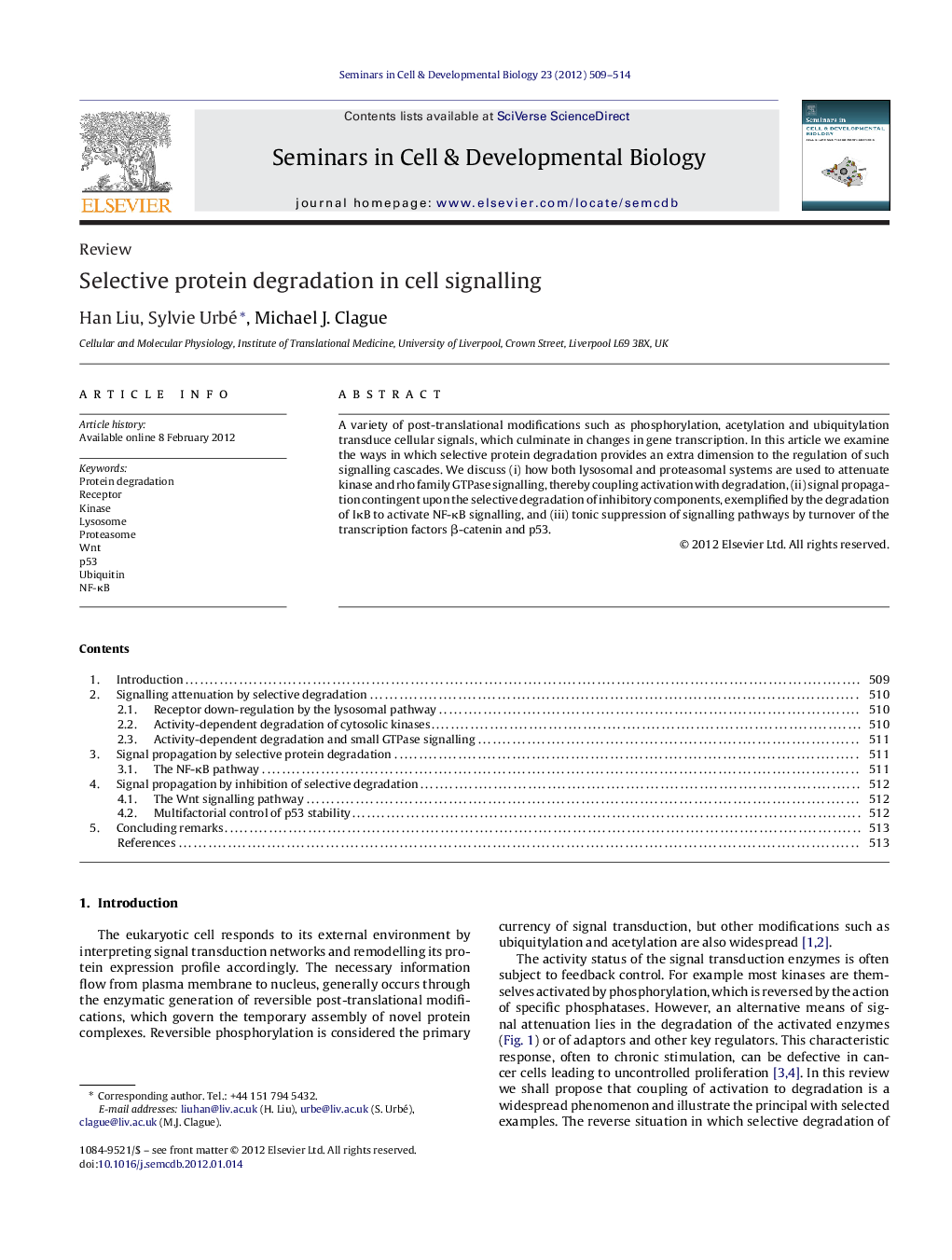| کد مقاله | کد نشریه | سال انتشار | مقاله انگلیسی | نسخه تمام متن |
|---|---|---|---|---|
| 2202699 | 1100383 | 2012 | 6 صفحه PDF | دانلود رایگان |

A variety of post-translational modifications such as phosphorylation, acetylation and ubiquitylation transduce cellular signals, which culminate in changes in gene transcription. In this article we examine the ways in which selective protein degradation provides an extra dimension to the regulation of such signalling cascades. We discuss (i) how both lysosomal and proteasomal systems are used to attenuate kinase and rho family GTPase signalling, thereby coupling activation with degradation, (ii) signal propagation contingent upon the selective degradation of inhibitory components, exemplified by the degradation of IκB to activate NF-κB signalling, and (iii) tonic suppression of signalling pathways by turnover of the transcription factors β-catenin and p53.
► Signalling activity of kinases and GTPases is often linked with enhanced turnover rates.
► Signal propagation in the NF-κB pathway utilises selective protein degradation.
► The Wnt and p53 signalling pathways rely upon a selective reduction in protein turnover.
Journal: Seminars in Cell & Developmental Biology - Volume 23, Issue 5, July 2012, Pages 509–514